Celebrating One Health at NC State
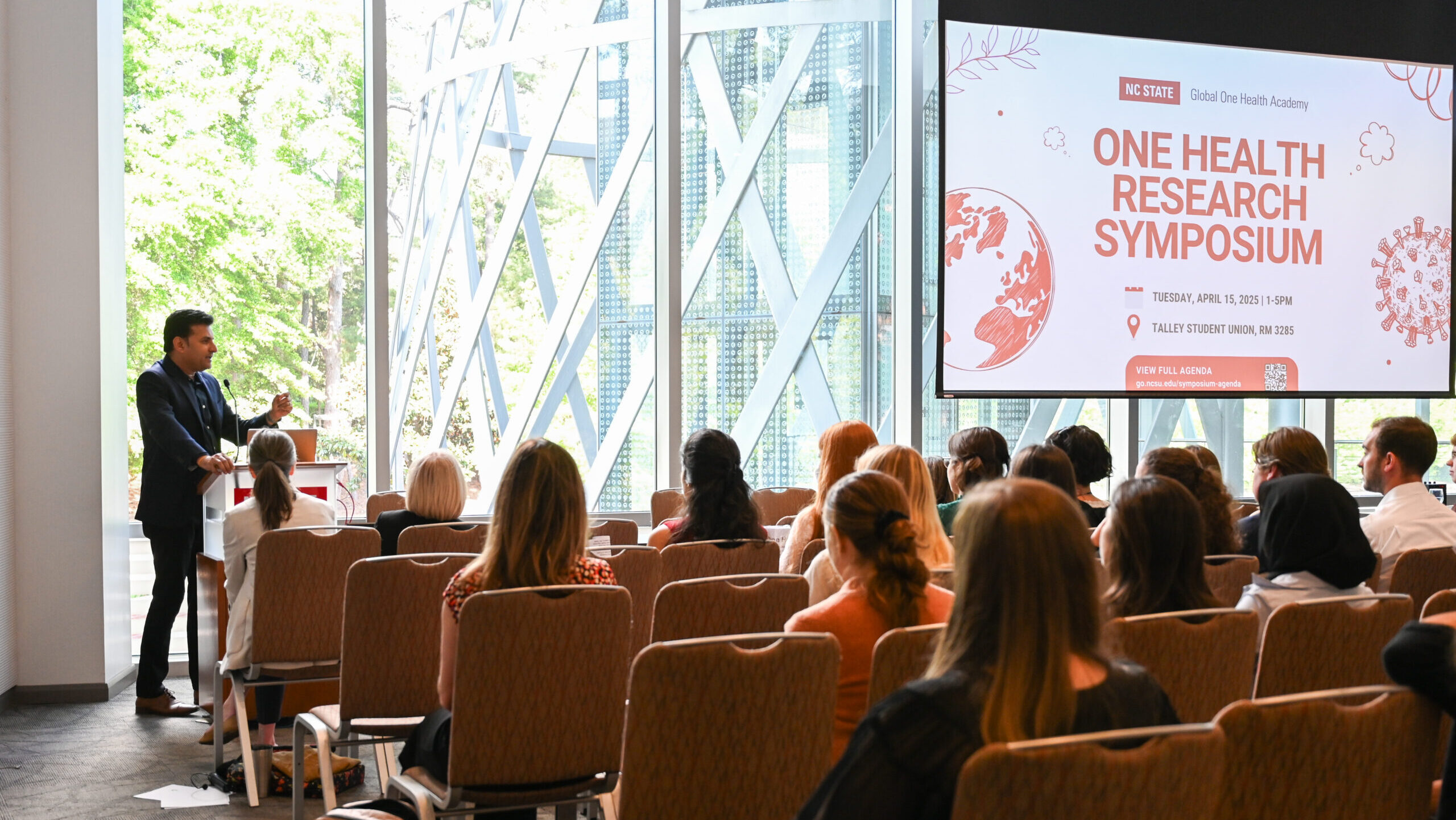
On Tuesday, April 15, the Global One Health Academy hosted its second annual One Health Research Symposium with over 100 attendees, featuring keynote speaker Laura Kahn (One Health Initiative) along with guest presentations from our Global One Health Fellows, GCAP AMR seed grant winners, and more!
An Afternoon in One Health
Eager attendees gathered in Talley Student Union for an afternoon of One Health celebration at NC State University. To kick off the event, GOHA Executive Director Dr. Sid Thakur welcomed everyone and offered a look into the Global One Health Academy, sharing our key programs and efforts, such as the Global One Health Fellows, Global One Health Scholars, Participatory Sciences Graduate Certificate, and more!
After wrapping up his introduction, Dr. Thakur then introduced the keynote speaker, Dr. Laura H. Kahn of the One Health Initiative. Dr. Kahn spent 15 years as a research scholar with the Program on Science and Global Security at the Princeton School of Public and International Affairs, Princeton University. In April 2006, she published “Confronting Zoonoses, Linking Human and Veterinary Medicine” in the Centers for Disease Control and Prevention’s (CDC) Journal of Emerging Infectious Diseases which helped launch the One Health Initiative, a global movement promoting the health of all species by increasing communication and collaboration between human, animal, plant, environmental, and ecosystem health professionals. Dr. Kahn presented, A One Health Analysis of Food Safety & Security, Antimicrobial Resistance, and Climate Change in the 21st Century, where she discussed the vital importance of an interdisciplinary One Health approach to address current global issues.
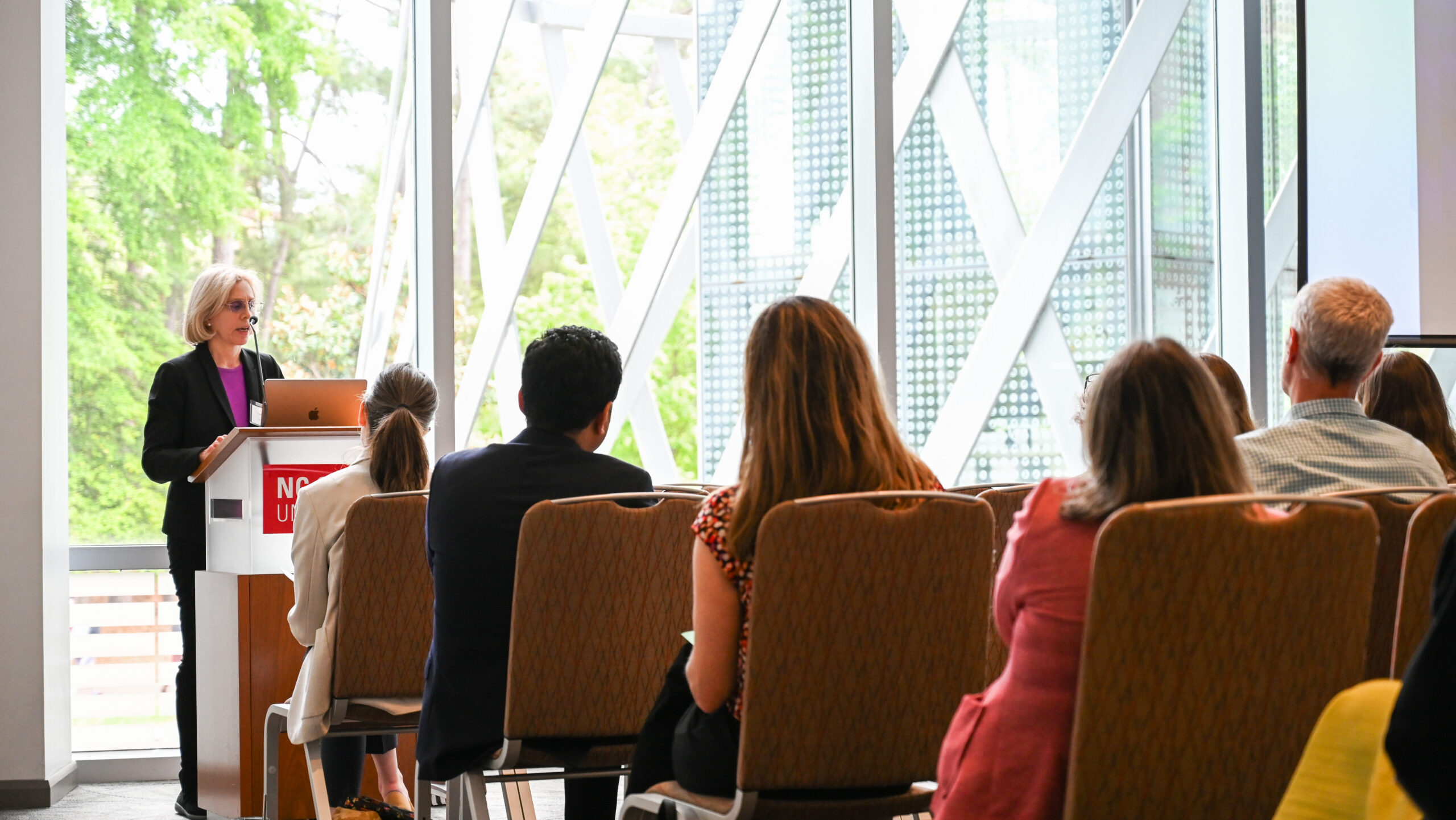
Songbirds and Corals and Tomatoes, Oh My!
Following the keynote address, the 2024-25 Global One Health Fellows shared presentations on their current research. Bradley Scholten kicked off this next batch of presentations with his talk, Antimicrobial Resistance in Songbirds: A One Health Problem. Through his research, Scholten aims to find an answer to the following question: How does overall bird feeder activity and diversity of species visiting a bird feeder affect the prevalence of bacteria on/around a feeder? While bird feeding may be a popular hobby for many, it unfortunately can promote the spread of disease among birds and humans. Scholten chose to focus specifically on two bacteria that infect songbirds, Salmonella and E.coli. These bacteria can also infect humans and become resistant to antibiotics, thus making them more difficult to treat. To determine where songbirds are initially exposed to these bacteria, Scholten and his team set out bird feeders in three different areas: livestock farms, suburban yards, and then natural areas for a control. Results revealed higher antimicrobial resistance in the farms and yards, suggesting that human disturbed areas may be the sources of bacteria for songbirds. Scholten’s research emphasizes the importance of continuing to monitor wildlife populations for AMR bacterial spread.
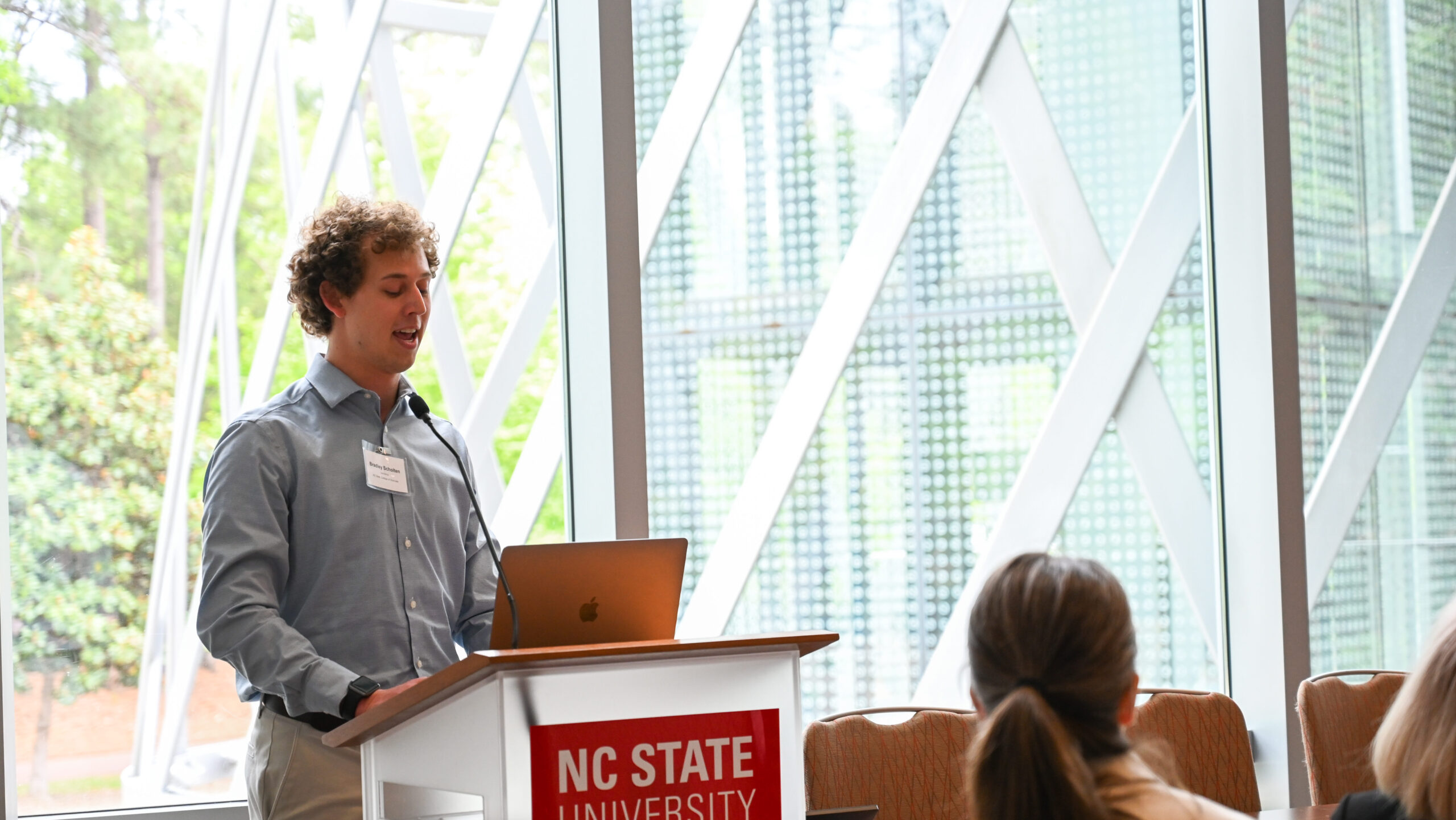
Andrea Landaverde followed up with her presentation on Evaluation of Immune Responses in Stony Corals Across Different Environments in the Florida Keys. Through her research Landaverde strives to answer the following two questions: 1) How do different reef environmental conditions (offshore and inshore) influence immune responses between reef-building coral species?, and 2) How do symbiont community and density influence coral immune responses between coral species across different reef environments? Corals provide key ecosystem functions, including coastal protection, food sources, medicinal products, and more. Yet, today there are approximately 40 coral diseases that affect more than 200 species of reef-building coral. Through her research, Landaverde aims to increase understanding of coral immunity and what factors influence coral susceptibility to disease. With this increased understanding, Landaverde argues that we can work on treatment, restoration, and conservation efforts to prevent further destruction of our reefs.
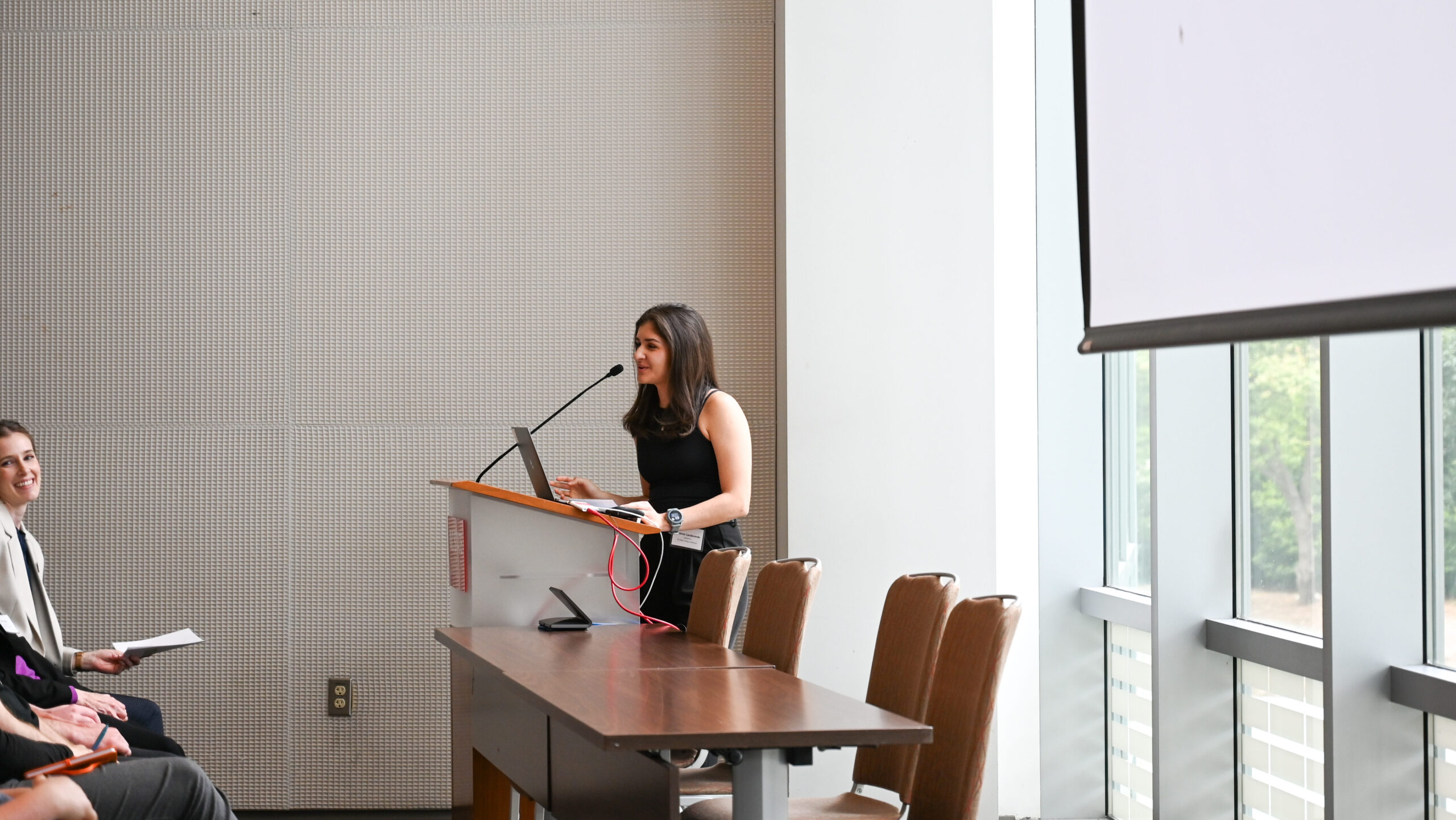
Following this conversation, Holly McInnes shared her presentation on Investigating Resistance Breaking Tomato Spotted Wilt Virus Fitness and Breeding for Durable TSWV Resistance in Tomato. TSWV is a plant infecting virus that affects over 1000 plant hosts, including tomato, pepper, potato, lettuce, peanut, and cucurbits; thus, causing detrimental impacts across large and small scale agricultural systems. TSWV is infected and transmitted by 14 different species of thrips. Management for this virus involves vector management and the planting of TSWV resistant cultivars. Planting resistant plant cultivars is widely viewed as the most effective, environmentally friendly TSWV management tool. For tomatoes, the resistant gene Sw-5b was utilized among resistant cultivars and was effective in TSWV protection for several years until 1993 – when TSWV resistance to Sw-5b emerged worldwide. In fact, right as McInnes started her PhD in 2022, North Carolina recorded its first report of resistance breaking (RB) TSWV causing up to 100% yield losses for affected tomato growers in western NC. McInnes’s research has determined that RB-TSWV emerged independently in NC and has persisted for three years, indicating that it will unfortunately continue to threaten NC tomato production. McInnes argues that increased understanding of resistance breaking diversity and fitness dynamics can inform disease management decisions and aid in the development of more crop protection tools.
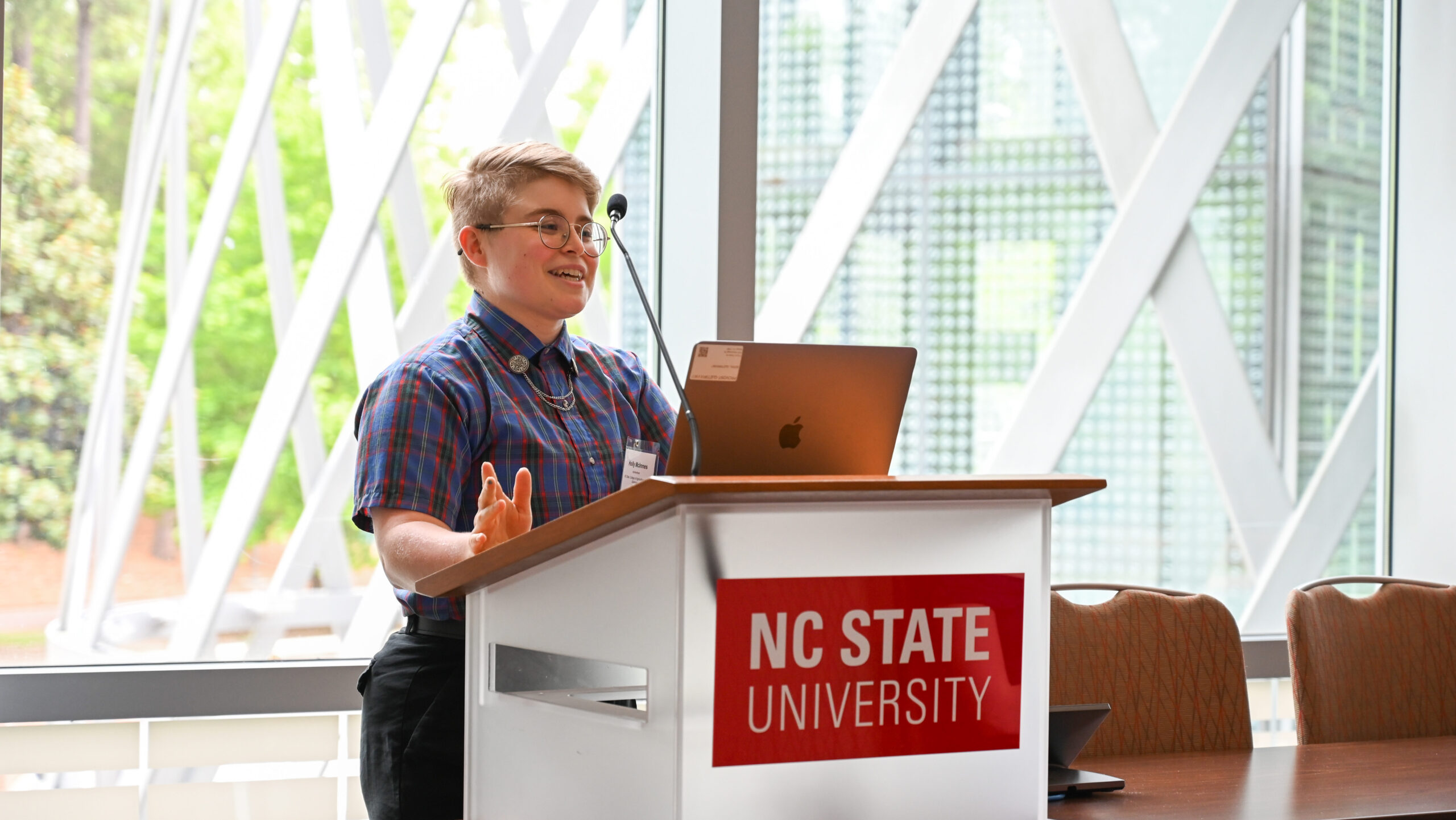
Continuing the topic of resistance, Benjamin Clark followed with a presentation on Antibiotic resistant E. coli source tracking in Lampung, Indonesia. Antimicrobial resistance was associated with 4.71 million deaths in 2021 and E. coli was the leading AMR associated killer in 2019. Clark’s research explores extended-spectrum beta lactamase (ESBL) E. coli in Bekasi and Metro, Indonesia. ESBLs are enzymes that produce resistance to most widely used antibiotics, thus making some infections caused by ESBL-producing bacteria difficult to treat. To study environmental transmission pathways of ESBL E. coli in Indonesia, Clark and his team sampled various sources, including well water, septic tanks, livestock feces, stormwater, greywater (lightly used water that does not include fecal matter), and soils. Results revealed that rainy seasons were associated with higher detection rates of ESBL E. coli in shallow well water and soils. These findings can help prevent communities from coming in contact with contaminated waters and therefore reducing the risk of illness.
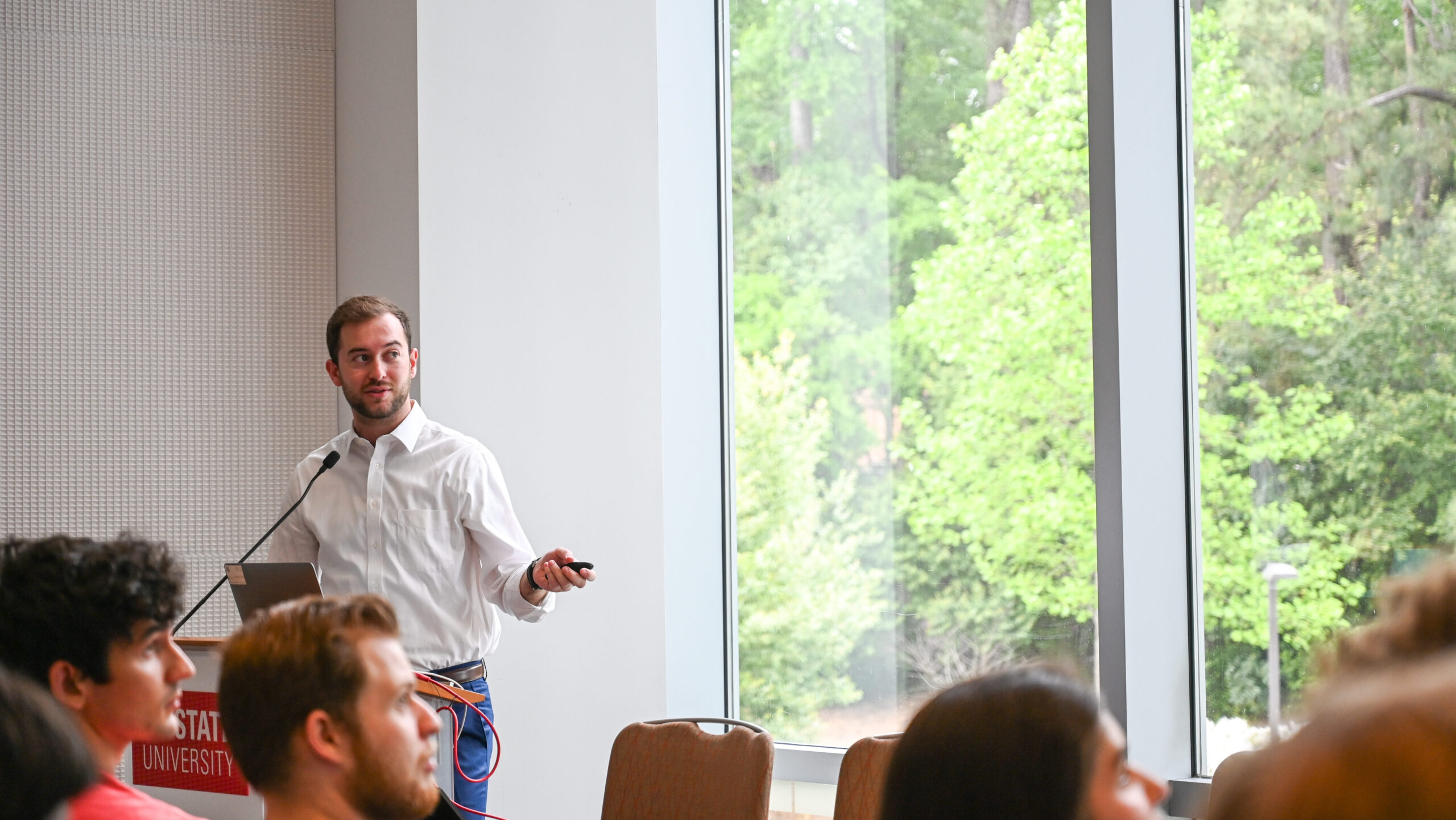
Finally, Lydia Sellers closed out the Global One Health Fellows presentations with her talk on Building Ecological, Community & Personal Resilience Through Nature Stories, Interdisciplinary Resilience Curriculum and Community Collaboration. As worldly and environmental crises continue to compound, we are seeing the rise of anxiety and depression in young individuals. Therefore, it is important to prepare the younger generations for inevitable future changes, such as increasing natural disasters. To help teachers, parents, and students prepare for an uncertain future, Sellers and her team worked on education lessons that blend themes of ecological, personal, and community resilience through nature-based storytelling. Her research revealed that interdisciplinary resilience education is urgently needed to provide students with the necessary toolkit to prepare for what lies ahead. This type of education will support holistic well-being and foster resilience across various disciplines, ultimately offering greater support during times of crisis.
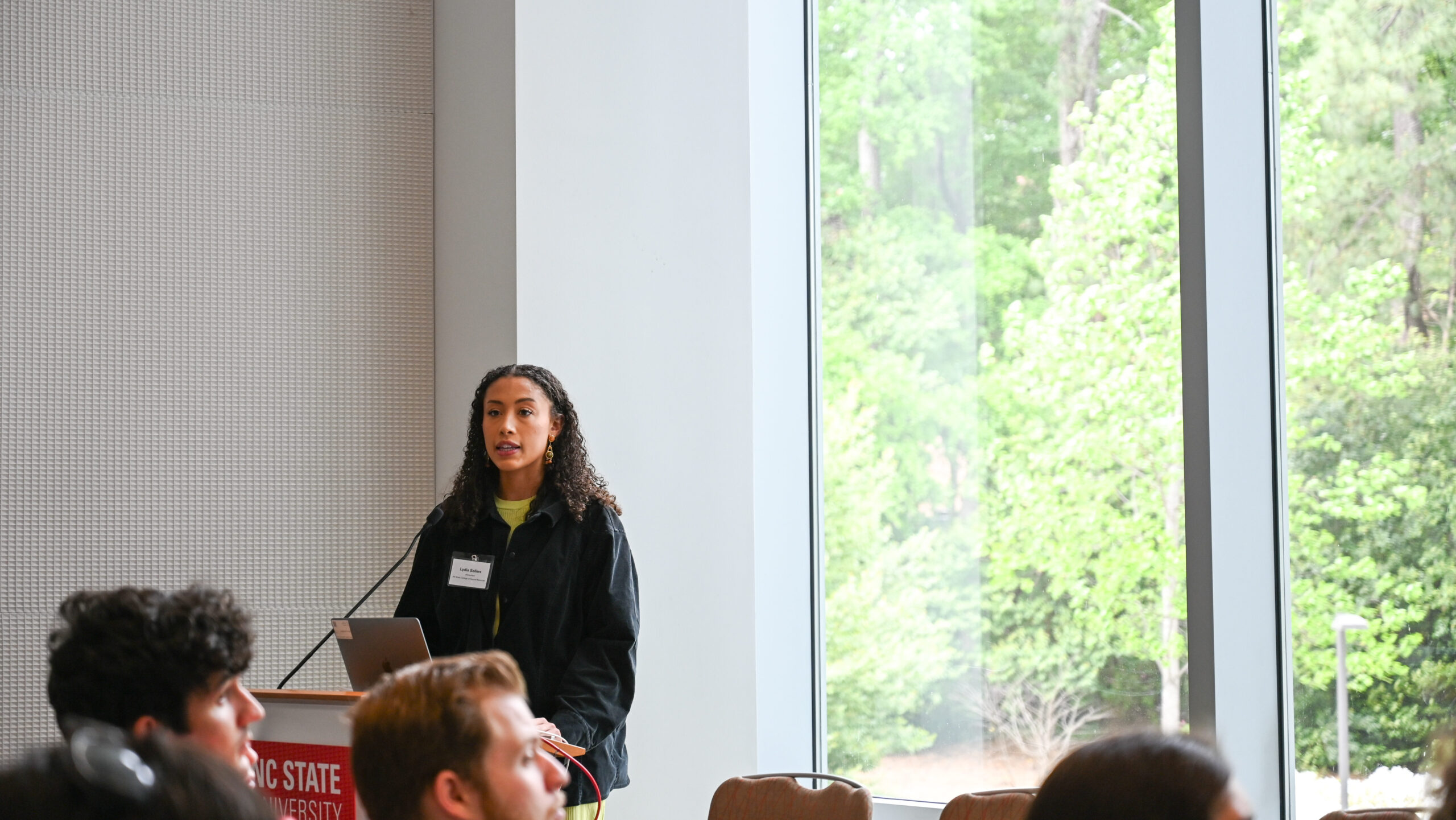
Posters and Awards
Following the 2024-45 Global One Health Fellow Presentations, we announced the 2025-26 cohort of Global One Health Fellows, including Ashley Cave (CVM), Jessica Ding (CALS), Cassidy Oliverio (COS), Emma Sell-Goodhand (CHASS), and Kelly van Woesik (CNR). We also recognized our current cohort of Global One Health Scholars, including Abigail Finch (COS), Sascha Godfrey (COS), Cristina Payst (COS), Valeria Rayo-Solano (COS, CHASS), Ava Smith (COS), Rida Tariq (COS), and Kara Vold (COS). Lastly, we announced our 2025-26 cohort of Global One Health Scholars, including Kayley Carpenter (CALS), Mercedes Morales (COS), Willamina Ingle (COS, CHASS), Fedora Parra (COS), and Yvette Wittenborn (COS).
The event then shifted to an engaging poster session featuring 20 posters from trainees, including undergraduate and graduate students, along with a postdoctoral scholar. Topics ranged from PFAS exposure in sea lions to parasite prevalence in snakes with robust conversations booming throughout the room. Learn more about the poster presentations here, and be sure to click on the hyperlinked poster titles to learn more about these projects.
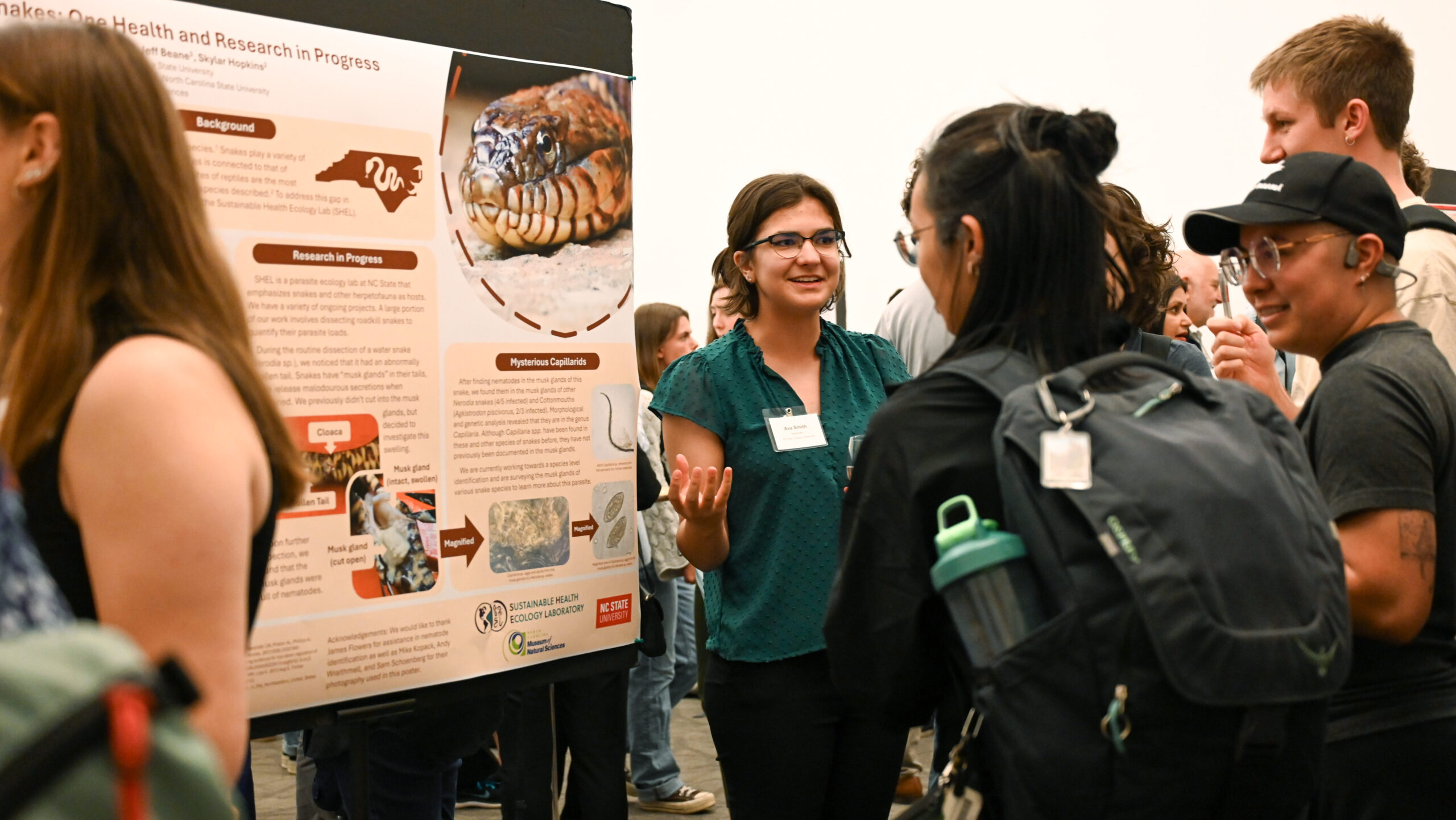
Next, we awarded the two winners of the Paper of the Year Award. One health papers published by NC State individuals in peer reviewed journals in 2024-2025 were eligible for this competition. From the faculty and staff prize category, Dr. Ayse Ercumen was awarded for her paper, “Water, sanitation, handwashing, and nutritional interventions can reduce child antibiotic use: evidence from Bangladesh and Kenya.” From the graduate student and postdoc category, Julia Harrison was awarded for her paper, “Tryptophan-Like Fluorescence for Monitoring Fecal Contamination in a Marsh-Dominated Estuary.” Both Dr. Ercumen and Harrison presented short talks about their research and how they utilized a One Health approach to find solutions to complex problems.
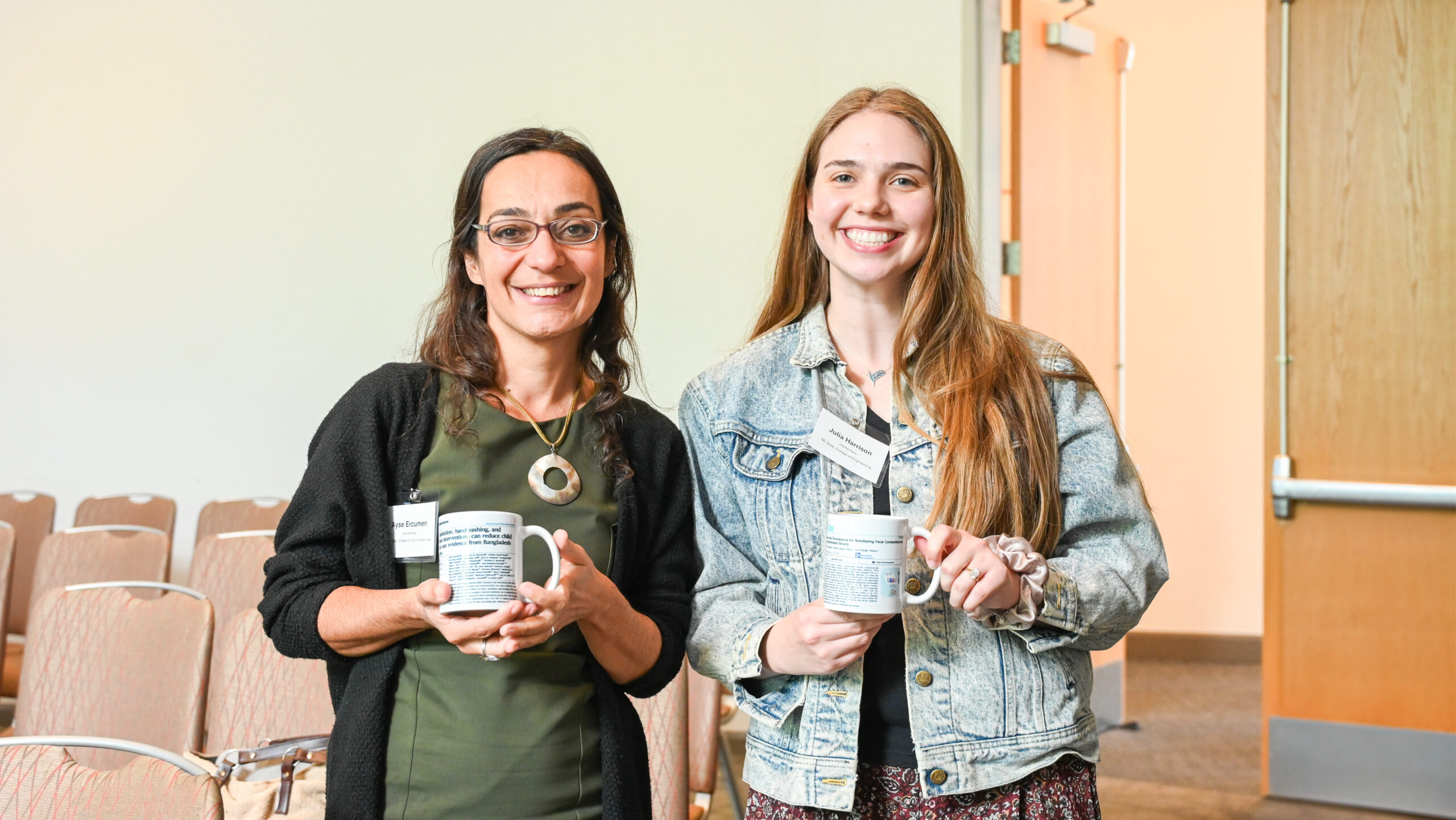
Antimicrobial Resistance
Finally, to close out the event, seed grant awardees through GOHA’s Grand Challenges Addressing Program on Antimicrobial Resistance (GCAP-AMR) presented flash talks on their projects and
engaged in a panel discussion on their interdisciplinary research. Projects cover topics including modeling of AMR organism colonization, development of novel materials, understanding AMR risks associated with tidal flooding, approaches to course-based research experiences on AMR, and machine learning for antibiotic combination discovery. Panelists included Cristina Lanzas (CVM), Reza Ghiladi (COS), Angela Harris (COE), Stephanie Mathews (COS), and Kaixiong Zhou (COE). Learn more about their projects here.
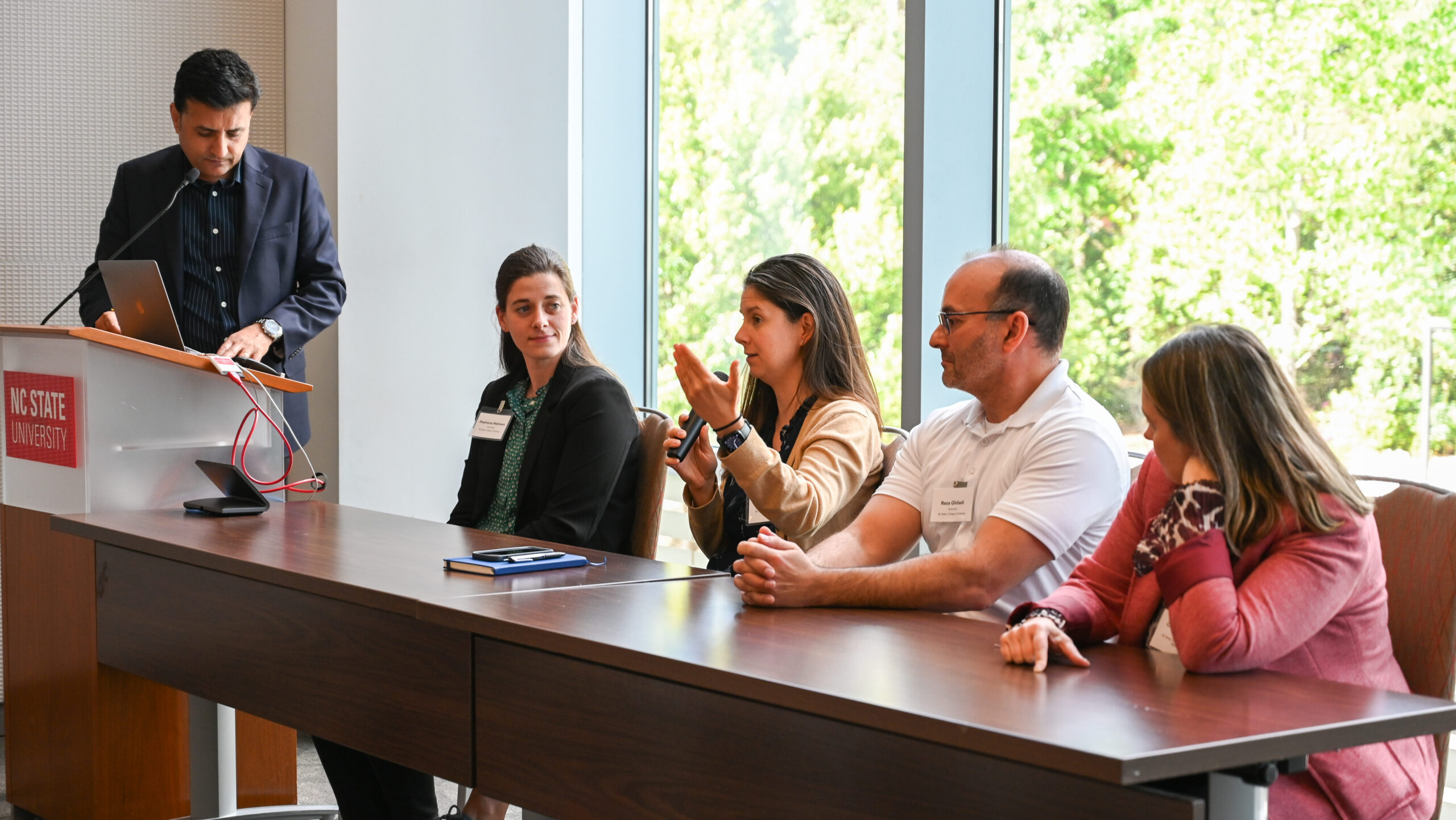
Next Steps
As the event wrapped up for the evening, Dr. Rob Dunn (Senior Vice Provost for University Interdisciplinary Programs) shared some concluding thoughts, recognizing the academy’s growth and success while also stressing the significance of failure. He highlighted that when we encounter setbacks, those experiences can spark new perspectives that might set us on paths to new discoveries. He encouraged us to make space for the surprises that can result from getting out of our silos and embracing the risk of failure. On that inspiring note, the 2025 One Health Research Symposium concluded and guests headed over to a reception to continue robust One Health conversations with their peers.
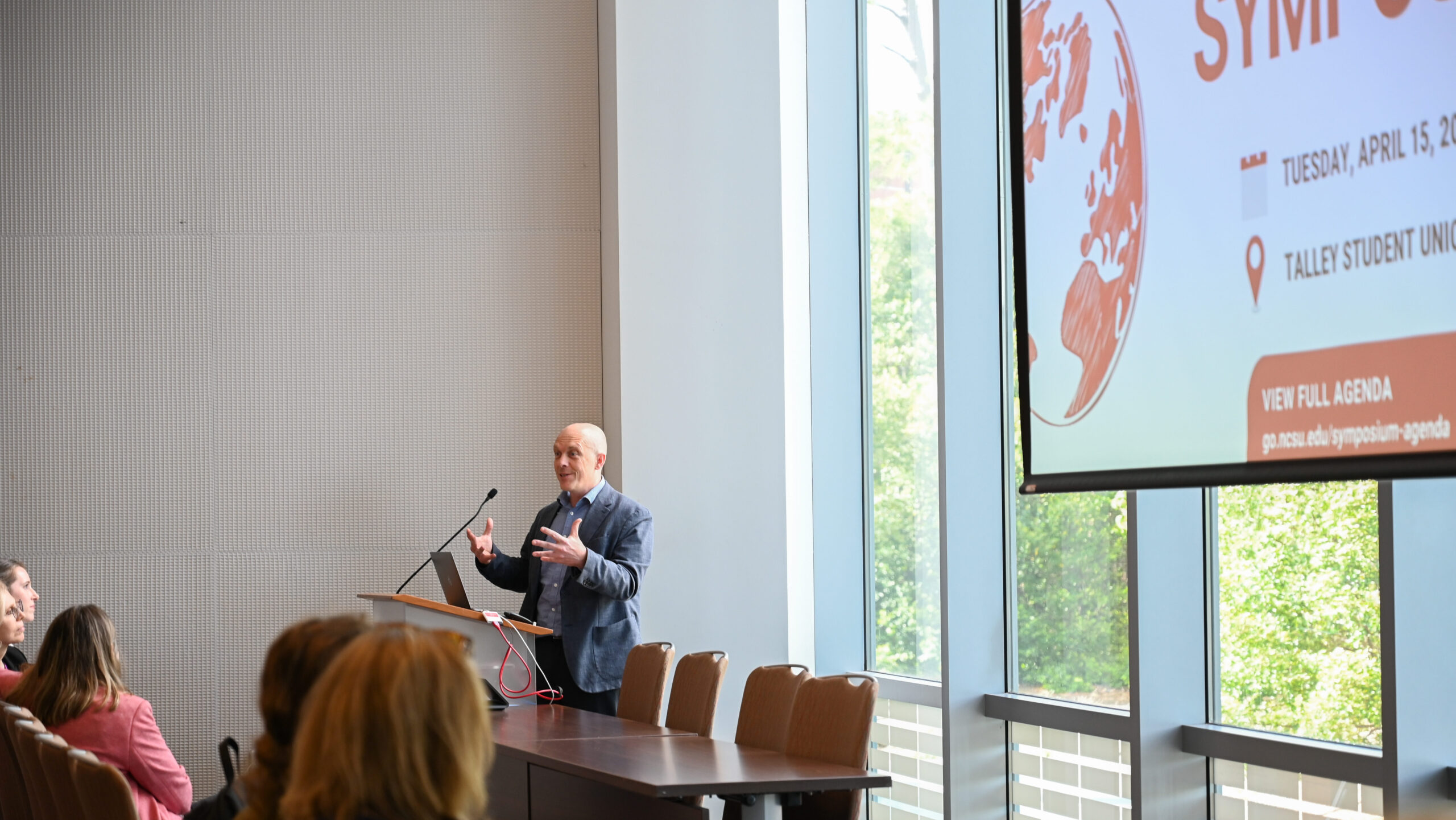
The Global One Health Academy would like to extend their sincerest gratitude to the core team along with the presenters and the 100+ faculty, students, and staff who contributed to the success of this event! If you liked what you saw this year or couldn’t make it this time around, join us next year as we continue to celebrate One Health research and leadership at NC State!
- Categories:


